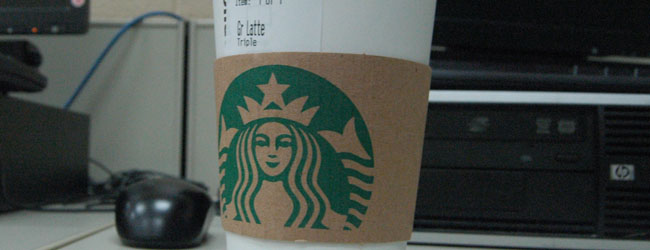In a recent study, researchers experimented whether or not the unique blend of “foreign ingredients” in energy drinks actually provide the attention span and energy they advertise.
In the experiment, researchers examined participants’ brain activity while they performed a task that required attention. Specifically, they looked at how quickly the brain responded to a change in letters appearing on a computer screen.
Each of the participants consumed either eight ounces of either water, water with caffeine, or water containing 5-Hour Energy, a popular energy drink. The drinks were altered per each participant based on their body weight. All the drinks were also colored blue so that a distinction between the three could not be found.
Throughout the research, it was found that the participants who drank the caffeinated drinks had faster brain responses, compared to those who drank plain water. However, between the caffeinated water and the energy drink water, there was no difference in brain activity.
The study concluded that drinking about two coffees would be equivalent of drinking a 5-Hour Energy drink.
An advantage of 5-Hour Energy is that is it a concentrated amount of caffeine, therefore people can drink less, and get more energy. With coffee, individuals must drink at least two cups of coffee to get the equal amount of caffeine.
However, despite these advantages, there are numerous disadvantages to drinking energy drinks, particularly 5-Hour Energy. There has been severe concern over the safety of energy drinks and the FDA released that they had received reports of health problems linked with 5-Hour Energy drinks.
“Caffeine is exceedingly safe at low doses, 100 to 300 milligrams (mg) a day, which is in a few cups of coffee,” Dr. Pieter Cohen, an internist at the Cambridge Health Alliance and assistant professor at Harvard Medical School said to Boston.com. “But when you go above 600 to 1,000 milligrams, you start to have side effects like jitteriness, heart palpitations, and panic attacks, and this could have synergistic effects with stimulants like DMAA, which are also in these supplements.”
The FDA is investigating reports that five people died and one survived a heart attack after consuming energy drinks. It is not clear whether the drinks actually caused the adverse events however more and more evidence every day hints on the danger of energy drinks.
Emergency rooms have also reported an adverse effect to energy drinks. Researchers from the Substance Abuse and Mental Health Services Administration found that the number of emergency department visits involving energy drinks jumped from 1,128 visits in 2005 to 16,053 in 2008 and 13,144 in 2009.
Nutritionist Ruth Carey said to FOX News along with the caffeine, the drinks carry herbs which are also stimulants. They can be especially damaging for athletes.
“When I was working with professional athletes and toward the end of the season they were tired, they needed a little boost,” Carey said. “They downed one of these energy drinks in a large quantity and ended up in the ER instead of the game.”
Some health experts argue that the combination of compounds in energy drinks and are demanding that more research should be done to target how much energy drink is too much. Energy drinks can contain chemicals such as guarana, taurine, L-carantine, ginseng and yohimbine.
Experts are worried that caffeine is not regulated enough by state law or the FDA. They explain that a likely reason for this is the fact that caffeine is not a prescription drug or an over the counter medication. It is a supplement that is difficult and rarely regulated.
So how much caffeine is enough? The FDA limits the amount of caffeine in non-prescription drugs to a maximum of 200 mg per dose.



